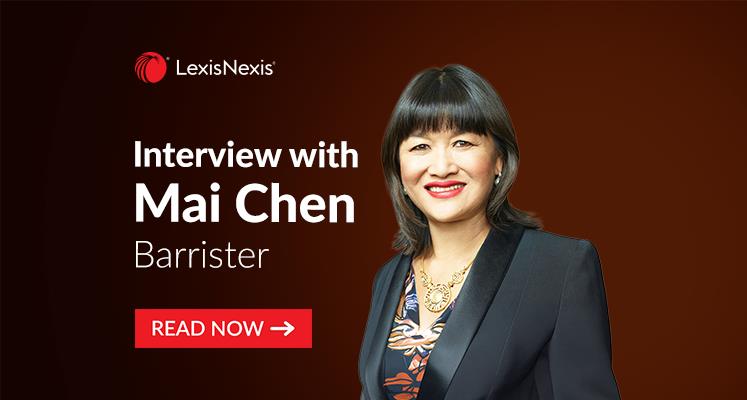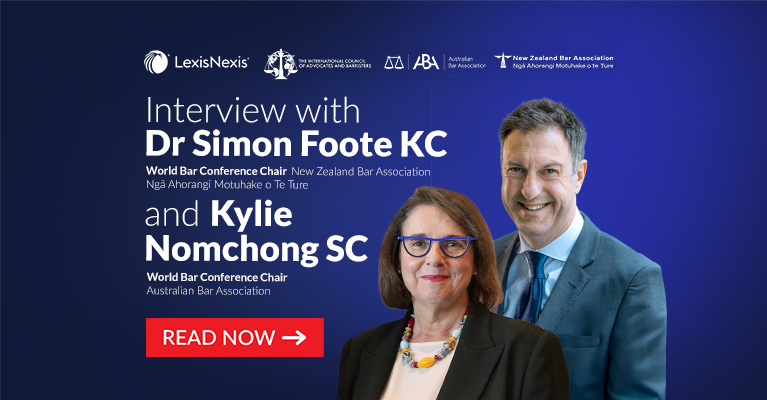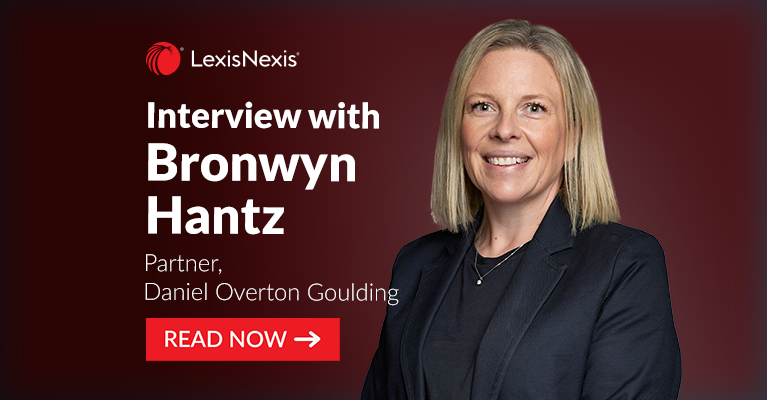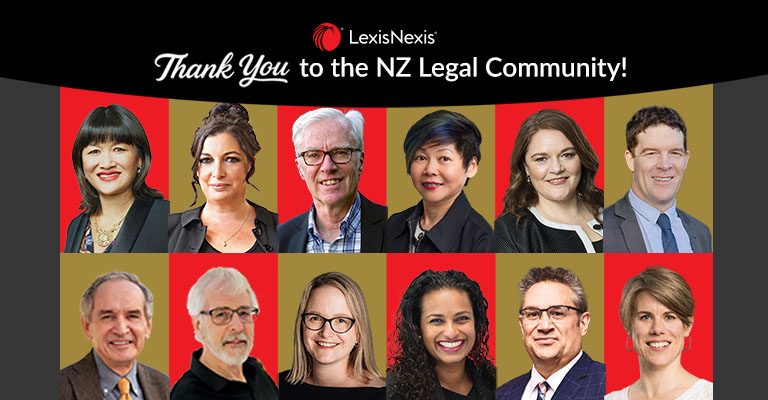Summary When executive power goes unchecked A chance for solidarity among common law jurisdictions New Zealand at the forefront Beyond the minutiae The human connection Creating environments...
Summary The empathy advantage From server to cloud Competing with larger machines The Ferrari and the potholes The enduring powers problem The constant foundation Originally published...
Summary The year legal AI became real Voices shaping the profession A year worth remembering Contributors 2025 There's a curious phenomenon about how we experience time. When our days are...
Summary The problem with platform hopping How the models differ Security without compromise Beyond legal research The speed of adoption Originally published by NZ Lawyer . Republished...
Summary Introducing Protégé General AI General AI Models Available in Protégé for New Zealand Legal Workflows Practical Use Cases for Lawyers But as AI becomes more common in legal practice...

Summary
- Shaping legal understanding for Asian New Zealanders
- “I was always an Energizer Bunny.”
- The liberation of solo practice
- The AI revolution in law
- “There are things that have to get done.”
Originally published by NZ Lawyer. Republished with permission.
If you are involved in the legal world in New Zealand, and haven’t been living under a rock, you will likely know the name Mai Chen.
Chen’s current title is simply ‘barrister’ – a label so brief that it seems almost an affront to the long list of achievements and accolades that she has won over her career. From World’s Best New Zealander (in the Kiwi Expatriates Network) to an Honourary Doctorate of Laws from the University of Otago for services to Public Law and the profession, Chen has advised on countless Commissions of Inquiry and ministerial reviews, and represented a wide range of clients – both striving for justice through frontline advocacy and helping to shape and improve the nation’s legal and policy framework from behind the scenes.
It is hard to think of someone who has so tirelessly devoted herself to, and had so tangible an impact on, New Zealand’s legal scene in the last few decades, winning her a spot on the Most Influential Lawyer List (NZ Lawyer) for a number of years.
And yet, when she walked across the stage at the University of Otago in 2023 to accept an honorary doctorate in law for contributions to public and administrative law and to the legal profession, she was surprised that her work was being recognised.
“I never expected it,” she told NZ Lawyer recently. “You work away. You don't know if anyone ever sees it at the end of the day,” she said. “You can't do this sort of stuff for the roar of the crowd, because if you do, you'll never do anything. You have to want to do it. It has to matter to you. You have to do it even if no one ever says thank you”
For more than three decades, Chen has shaped the conversation around how New Zealand’s laws meet the realities of its people. From founding one of the country’s first boutique public law firms to challenging the courts to understand cultural contexts relevant to adjudicative facts and issues in a case, she has focused on questions others have initially overlooked — especially those arising as New Zealand’s demographics have shifted dramatically.
Chen's journey from a six-year-old Taiwanese immigrant who spoke no English to one of New Zealand's most respected barristers reads like a masterclass in determination. Born in Taiwan and arriving in Christchurch as the first Taiwanese family in the South Island, she built her career by consistently doing "stuff that nobody else has ever done".
Shaping legal understanding for Asian New Zealanders
Many of Chen’s achievements stem from a deep passion for law, but also from a recognition of the legal landscape and its effectiveness as a problem-solving tool in New Zealand, and a desire to protect the vulnerable.
Chen's current research into Asian parties and the Property Relationships Act exemplifies her approach to meaningful work. "This has turned out to be very, very interesting and I'm writing in this area because no one else is writing," she said. The project addresses a genuine need while satisfying her intellectual curiosity.
“When the Property Relationships Act was enacted, 1% of the population were Asian. Now it’s getting towards 20%,” she said. “Most of these people were not born here. Most didn’t grow up in this culture or speak English as a first language.”
That cultural overlay, Chen explained, creates unique issues and complications in family law disputes, which are already complex and fraught. “Many Asian cultures are patriarchal, so they find the 50/50 split difficult. Their concept of what’s fair and reasonable is different. The degree of family involvement is fundamentally different. You are a member of a family even if you are now an adult, not an individual. For example, parents often transfer wealth to their adult child to help them buy a matrimonial home with the cultural expectation that the parents will live in it when they get old and their child and their partner will look after them.” Those cultural expectations and obligations are relevant to determining whether the transfer was a gift or a loan when the marriage breaks down.
Chen is working on research around these issues for the upcoming 50th anniversary of the Act, where she has been asked to speak at a Beehive conference and to publish her article in the 60th Anniversary Edition of the Otago Law Review. She has asked Alice Strang, a young Eurasian family lawyer she is mentoring to co-author the article with her. She noted how courts can face unique issues with Asian parties due to money being transferred out of China in small amounts due to government restrictions or through third parties, or contests over ownership of gold jewellery given the deep cultural traditions around its transfer and arranged marriages. This is additional to the usual suspects – English as a second language and a lot being lost in translation, especially if the quality of court interpreters is not high nor consistent, lack of documentation and difficulties getting discovery which is often a foreign concept to Asian parties.
“There are very few Asian judges so judges don’t come from these cultures, so if they don’t understand the cultural overlay, they might misinterpret why certain things happened, and credibility may be harder to ascertain” she said. She has long focused on the intersection of culture and law and founded New Zealand Asian Lawyers to support that work. The work is not just about access to justice, but also about ensuring a just outcome. Without understanding the cultural overlay, the decision may not be just.”
“Years ago, I could see the population was transforming, and I could see it was going to create real and unique issues. That is why I shifted to Auckland and set up NZ Asian Leaders, the Superdiversity Institute of Law, Policy and Business, and NZ Asian Lawyers."
She believes legal professionals need to develop cultural intelligence - CQ - alongside traditional qualifications. "They've got IQ. Some of them have got EQ, but they all need CQ if you want to advise successfully in New Zealand."
“I was always an Energizer Bunny.”
Many in New Zealand first heard of Chen with the 1994 establishment of Chen Palmer, the firm she co-founded with Sir Geoffrey Palmer. The simple fact that a former Prime Minister allowed his name to go second on the masthead was enough to turn heads – everybody knew Palmer, but who was Chen? “Geoffrey insisted my name go first. He said it would be the first law firm with a Chinese name first and we needed to signal to the market that we were doing something different. He also insisted we got paid the same. His charge out rate was higher, but I did more hours – it always worked out in the wash, but I appreciated being treated as an equal.”
The boutique law firm was the nation’s first public law specialist firm, another example of stuff that nobody else was doing. But its success became its greatest challenge.
"It was very successful. It was far too successful. There was too much going on all the time. We never got a break," Chen reflected. Her dedication bordered on the extreme - taking only five days off when she had her son, now a towering six-foot-three young man working towards being a deputy registrar at Auckland High Court while pursuing an acting career after work.
“I was always an Energizer Bunny. I was a woman who never said no… I just said yes to everything, and I just stayed up 24 hours a day and just worked harder. But I have discovered that you need to look after yourself in this profession.
This has been the biggest lesson for Chen over her career – learning to take more time for herself and resisting burning the candle at both ends.
“It is extraordinarily important to understand that law is a really difficult profession – unlike the concept of “grace” in the Christian Gospels, it is very hard to get compliance with the law right.
It is also full of Type-A personalities. You have to work super hard to get here, and if you don't look after yourself, you will get PTSD, burnout and very poor mental health. I have been there and done that. It’s time to do something different, so self-care is getting top billing with me for the first time. It is wonderful, and I feel happy – and am enjoying law.”
The liberation of solo practice
Moving to the bar represented a professional rebirth.
"It's been wonderful coming to the bar. All I do all day is law," Chen said. The freedom to choose cases based on interest rather than financial necessity has redefined her practice. "I can't tell you what it's like to wake up in the morning without being liable for multi millions of dollars of cost."
This selective approach allows Chen to focus on complex problems that others find intractable. "It's become a bit of a specialty of mine. I tend to get legal issues that others have not managed to solve," she explained. “It is good I like a challenge. 'I am a lover, not a fighter' (quoting Michael Jackson). If I can settle, I always will because the fight to the death especially in court is generally very painful for your client.”
In her personal life, too, she is finding joy in things that she hasn’t had time for before. Recently, her husband went abroad for an academic conference on TS Eliot (his PhD thesis) at Oxford University and Chen found herself in the unfamiliar role of running around after her son as the young man adjusts to the transition from student to the demands of working life, converged with being 13 different characters in the play “The 39 Steps” all happening at the same time.
“All I'm saying is that there has been joy in that – who knew I could bake and cook – it’s been 30 years and my son said he was enjoying the novelty!… but if you ask me, will I stop working? Well, if I find something that gives me more joy, I suppose I would. But to be honest, the people that I have as clients are really interesting, and most of them just need a lot of love and care. They are often at a very bad and difficult time in their life. And if you can help them up and, back on their feet, and set them off down the road freed from their cares, there's a lot of joy in that too.”
The AI revolution in law
Chen is also cognisant that the future of law is accelerating before the profession’s collective eyes due to the impact of AI. Early on, she couldn’t find the time to learn about AI. But when she was contemplating hiring another employed barrister, she decided to do a trial of the Lexis+ AI with the Protégé AI assistant instead.
“I was sold on the first day. It corroborates the answers with statutes, cases and commentary, so I am confident of the results, unlike the free public source AI tools,” she recalled.
Using the Lexis+ AI Protégé tool has transformed her efficiency – and the benefits extend beyond convenience. "It's incredible. If I got my employed barrister to spend an hour of his time doing [a task] it's a whole lot more expensive than what I pay per day for the AI," Chen explained. This cost reduction has significant implications for access to justice – the subscription provides the same research capabilities as large firm resources.
“If you're on legal aid, you can get access to the same powerful database and knowledge as someone in a big firm with a private client. I think it's a leveller.”
Her advice to established lawyers is typically pragmatic; embrace AI for your bottom line and your clients’ benefit.
“I mean, if you want to be at a market disadvantage and charge your clients more, feel free [to avoid it]. But the reality is, clients will love you if you look after them, and what you're charging them makes sense and is the least possible.”
However, Chen worries about the impact on junior lawyers. "I really feel for them. I just think life's going to be so difficult for them," she said, noting that even entry-level legal work can now be automated. She is mentoring 4 law students and her advice to them is stark: "You must specialise as soon as you can and get off fetching and finding and base level research as soon as possible.”
“There are things that have to get done.”
Chen shows no signs of slowing down. "I expected at this stage of my career to have a little less energy than I have," she admitted. Her daily routine includes gym workouts (speed cycling, yoga and pumping weights), dog walks (with Pippin, the family border collie), and voracious reading of current affairs alongside her legal practice.
"Life is not about time. It's actually about energy, and before I run out of energy, I want to make sure that if there was an issue or something that I could have contributed to, then I did it," Chen said.
This drive stems from internal motivation rather than external recognition. Chen once underwent a psychological profile test at the hands of Dame Barbara Kendall. Not surprisingly, the results indicated someone with massive internal drive – an Energizer Bunny.
“[Kendall] said ‘Look, there you are. You're in the top right-hand corner. You have an Olympian's mindset. You always want to go faster. It's not externally driven. It's internal. I want to know how good a lawyer I can be. I know I can always learn more and be better – if I work at it. I can’t get worse, so I have to get better at law.”
Her seemingly bottomless well of motivation is something she is used to explaining to others. People often wonder if Chen is chasing the next accolade, but that is not the case.
“I just think, does that look interesting? Does that need to be done? If I think it does [then I do it]. My son says, ‘Mum, why do you run everywhere?’ I say, ‘because there are things that have to get done!”
This reflects both her personal drive and professional responsibility. "The thing is, you can always be better. You can always know more," she said. Her curiosity about law remains undiminished after more than three decades of practice. “The longer I practice, the more I realise how much I don’t know.”
But her drive goes beyond just satisfying curiosity – perhaps it is the chase and the challenge of seeing how much she can improve not just herself, but the system she works within. The top athlete image is appropriate – truly groundbreaking athletes aren’t competing against other athletes; they are continuously refining their skills in their sport to the next level. Like an asymptote curve, so close to optimal in the eyes of mere mortals but the gap to perfection seems to loom larger from the athlete’s rarefied perspective.
At the same time, Chen is clearly a people person, warm and relatable, and her connections with clients a factor in her ongoing motivation. "People can call you. You don't know them, and within a week, you are besties. Many call me Auntie Mai. You're ‘going over the top’, literally together," Chen explained.
"You can have the most incredible connection with people. You are running the gamut. You are ducking bullets. You're the lawyer. You're trying to shield them from the bullets. You are trying to keep your client alive to fight another day."
The battle metaphor is telling – the legal world can be brutal, and Chen feels she has a duty to step up and help.
“I think that the most important thing that drives me is curiosity, and I love to learn. But given I work fixed hours now – about 50 hours unless I am preparing for trial in court when its more, that still gives me heaps of time to do all the things I enjoy outside of work. I once discussed the four-day working week with my son, who said “why don’t you try the five-day working week and see how that goes first Mum!” I have now tried it and its amazing! Two days holiday every 5 days. Who knew!"
Lexis+ AI with Protégé – a personalised legal AI designed to help you make informed decisions faster and transform your legal work – has now launched in New Zealand and is available to legal professionals across the country. Discover Lexis+ AI with Protégé features and book your Free Demo by submitting the form below:






